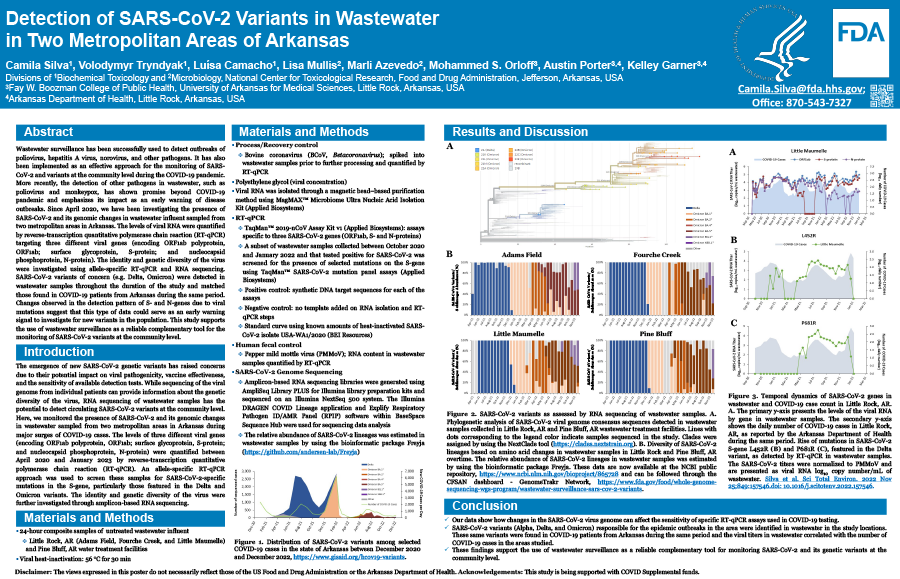2023 FDA Science Forum
Detection of SARS-CoV-2 Variants in Wastewater in two Metropolitan Areas of Arkansas
- Authors:
- Center:
-
Contributing OfficeNational Center for Toxicological Research
Abstract
Wastewater surveillance has been successfully used to detect outbreaks of poliovirus, hepatitis A virus, norovirus, and other pathogens. It has also been implemented as an effective approach for the monitoring of SARS-CoV-2 and variants at the community level during the COVID-19 pandemic. More recently, the detection of other pathogens in wastewater, such as poliovirus and monkeypox, has shown promise beyond COVID-19 pandemic and emphasizes its impact as an early warning of disease outbreaks. Since April 2020, we have been investigating the presence of SARS-CoV-2 and its genomic changes in wastewater influent sampled from two metropolitan areas in Arkansas.
The levels of viral RNA were quantified by reverse-transcription quantitative polymerase chain reaction (RT-qPCR) targeting three different viral genes (encoding ORF1ab polyprotein, ORF1ab; surface glycoprotein, S-protein; and nucleocapsid phosphoprotein, N-protein). The identity and genetic diversity of the virus were investigated using allele-specific RT-qPCR and RNA sequencing. SARS-CoV-2 variants of concern (e.g. Delta, Omicron) were detected in wastewater samples throughout the duration of the study and matched those found in COVID-19 patients from Arkansas during the same period.
Changes observed in the detection pattern of S- and N-genes due to viral mutations suggest that this type of data could serve as an early warning signal to investigate for new variants in the population. This study supports the use of wastewater surveillance as a reliable complementary tool for the monitoring of SARS-CoV-2 variants at the community level.

